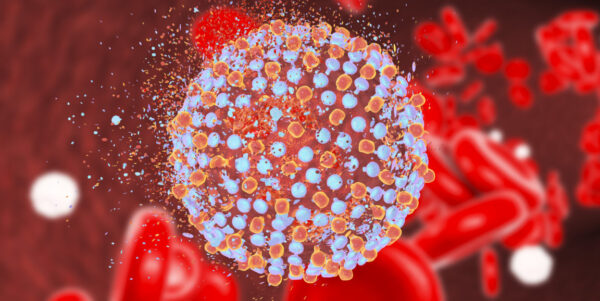
1.What is it?
Hepatitis C is a liver infection caused by the Hepatitis C virus (HCV). Hepatitis C can range from a mild illness lasting a few weeks to a serious, lifelong illness. Hepatitis C is often described as acute meaning a new infection, or chronic meaning lifelong infection.
2.How do you get Hepatitis C?
Hepatitis C is usually spread when blood from a person infected with the Hepatitis C virus enters the body of someone who is not infected. People can become infected with the Hepatitis C virus during such activities as: sharing needles, syringes, or other equipment to prepare or inject drugs; needle stick injuries in health care settings; being born to a mother who has Hepatitis C. Less commonly, a person can also get the Hepatitis C virus through: sharing personal care items that may have come in contact with another person’s blood, such as razors or toothbrushes; having sexual contact with a person infected with the Hepatitis C virus, getting a tattoo or body piercing in an unregulated setting.
3.How soon will symptoms appear?
For Hepatitis C, it can take 2 weeks to 6 months for symptoms to appear. On average, however, symptoms occur after around 6 to 7 weeks.
4.What are the symptoms?
Although many people affected with Hepatitis C do not show symptoms, some may experience the following after an initial infection: fever; fatigue; loss of appetite; nausea, vomiting, or abdominal pain; urine that is darker than normal; clay or grey coloured stool; joint pain; yellowing of the skin or whites of the eyes. Many people who have been infected and have a long-term infection may not show symptoms until liver damage occurs.
5.Testing and treatment.
Doctors will typically test a person with a blood test called a Hepatitis C antibody test. If a person has what is called a non-reactive or negative test result, the person will not appear to have HCV. However, if the test is given during the window period which is the 6-9 weeks following infection, the result could be inaccurate. Hepatitis Cis treatedusing direct acting antiviral (DAA) tablets. DAA tablets are the safest and most effective medicines for treating Hepatitis C. They are highly effective at clearing the infection in more than 90% of people. The tablets are taken for 8 to 12 weeks.
6.How can I reduce my risk of getting Hepatitis C?
There are steps you can take to reduce becoming infected: use new, sterile syringes and needles every time you inject; do not share any non-injection drug equipment, such as straws or pipes; do not share toothbrushes or razors or any personal care items that may have come in contact with someone living with Hepatitis C; if you are considering a tattoo or body piercing, be sure it is done by a reputable and licensed expert; practicing safer sex using a protective barrier (e.g., condoms) can reduce the risk.
image source: online

